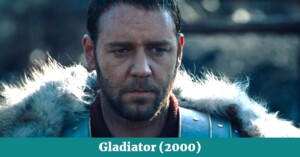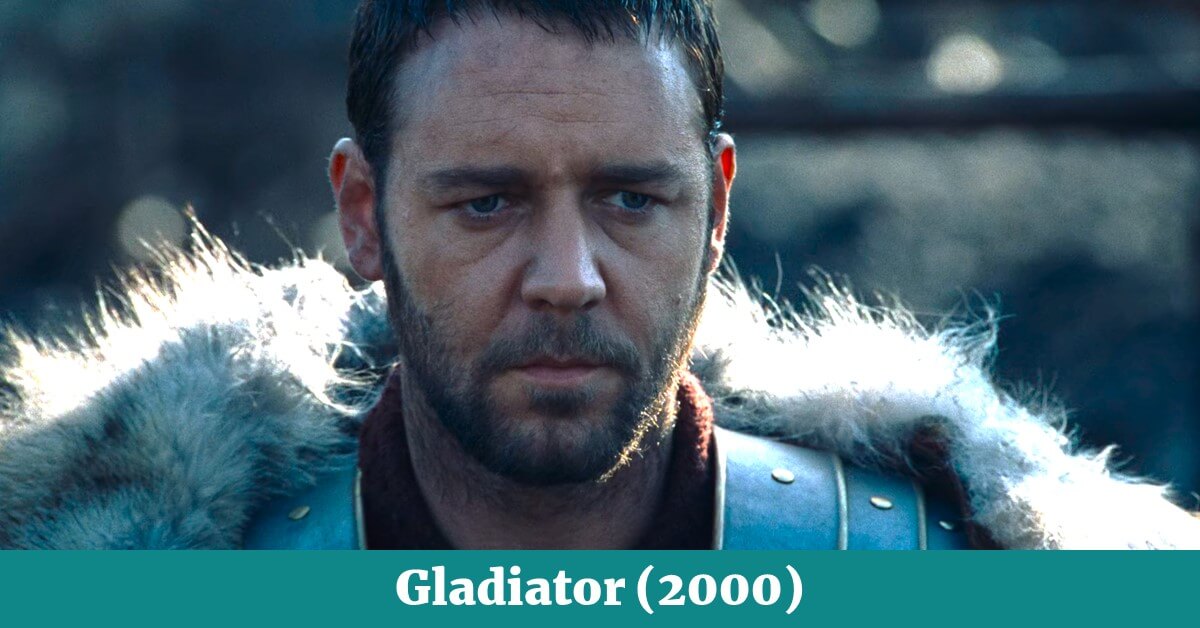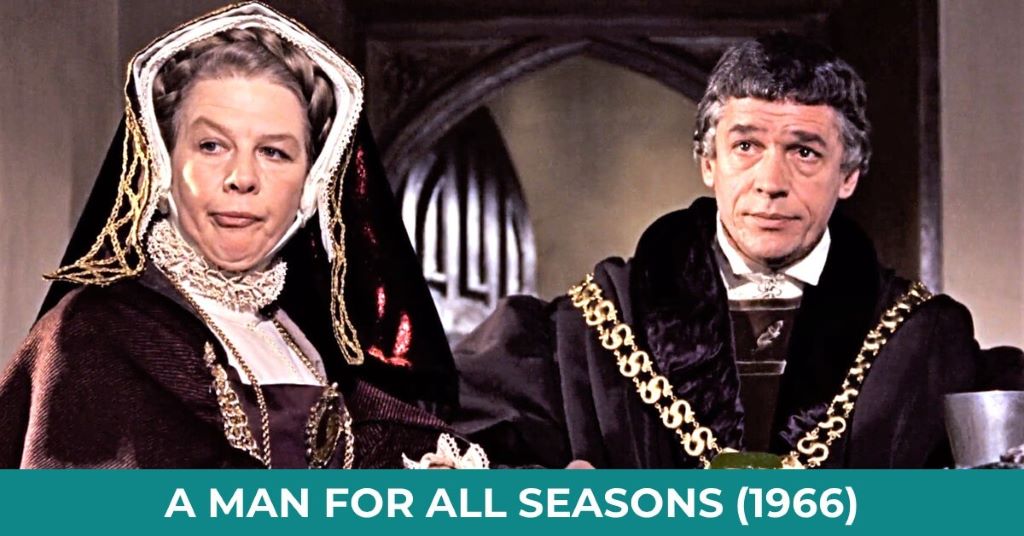Last updated on October 30th, 2023 at 10:13 pm
Released in 2000, Gladiator is an epic historical action film directed by Ridley Scott and starring Russell Crowe as the lead character, Maximus Decimus Meridius. The film tells the story of a Roman general who is betrayed and enslaved and ultimately seeks revenge against the emperor who killed his wife and son and burnt his house and betrayed him.
The film was a critical and commercial success, grossing over $503 million worldwide and winning five Academy Awards, including Best Picture. The film has been starred by Russell Crowe as Maximus, Joaquin Phoenix as Commodus, Connie Nielson as Lucilla and many others. Gladiator 2000 is one of the 101 best films I have seen of the 100 years and have been reviewing.
Storyline
Based on the life of Roman Emperor and stoic philosopher Marcus Aurelius, Gladiator is a story of a loyal Roman general, Maximus, who became a slave, a slave who became a gladiator and a gladiator who defied the self-assumed emperor, Commodus, who killed his father Marus Aurelius.
The film shows how he ended up avenging the deaths of his son, wife and his emperor, Marcus Aurelius. After the victory against Germania on the Rhine-Danube frontier in 180 A.D, near his death, observing his integrity, Aurelius offered Maximus to be the protector of Rome and to return to its true self: the republic, by rescuing from the corrupt politicians, which he declined and wanted to go home.
Aurelius told him that just because he does not want it that he must take it. He did not want his son Commodus to be named as the Emperor because he was amoral and corrupt. However, dismayed by his father’s decision, Commodus killed his father and assumed himself as Caeser, though Aurelius named Maximus as the one and only protector of Rome.
Although Commodus’s sister, Lucilla’s son Lucius was the rightful heir to the throne. Seeing Maximus as a potential rival, Commodus ordered to kill his son and wife and to burn his house as he refused to pay homage to Commodus as his emperor. Maximus was arrested and sent to be executed. Though he escaped, he was unable to save his family.
Commodus did not know of escape. Wounded, he reached home only to find everything burned down, his wife and son killed. He fell unconscious on the ground.
Rescued by a trader, Maximus was sold to a slave trader and a former gladiator freed by Marcus Aurelius, Proximo, who trained him as a gladiator to fight for the emperor’s games in the arena. One day, after the game when Maximus’s true identity and his intention of avenging his family were revealed, he wanted to arrest him but could not because of the mob who cried ‘Mercy’.
What we do in life echoes in eternity.
~Maximus Decimus Meridius, Gladiator 2000 quote
Maximus quickly rises through the ranks, becoming a successful gladiator and gaining the support of the people. Meanwhile, Commodus is struggling to maintain control of Rome and becomes increasingly paranoid and tyrannical. He decides to fight as a gladiator in the arena himself, in order to win the support of the people.
With the help of Senator Gracchus, Lucilla with whom Commodus fell in love to maintain a pure bloodline to continue the line of Commodus, Maximus proposed a coup. But knowing their plan, Commodus had Senator Gracchus arrested, and captured, Maximus was taken to the Colosseum, where wounded him in the back while chained to weaken him.
Commodus then offered Maximus to fight with him. Regardless of Maximus’ wound he fought valiantly and killed Commodus by thrusting his secret knife. None of his soldiers offered him a sword when asked for one when needed.
However, Maximus is mortally wounded in the process and dies shortly after. As his last words, Maximus said that his men must be freed and Senator Gracchus should be reinstated. Before he dies, he sees a vision of his family, who tell him that he has fulfilled his duty and can now join them in the afterlife.
Theme of Gladiator 2000 film
One of the central themes of the film is the idea of revenge and the price that must be paid for it. Maximus’ initial desire for revenge against Commodus drives much of the plot, but ultimately it comes at a great cost to him and those around him. The film suggests that the pursuit of revenge can consume a person and ultimately lead to their destruction.
Additionally, the film also explores the theme of power and its corrupting influence. Commodus’ greed for power ultimately leads to his downfall and the destruction of Rome. The film suggests that those who seek power for its own sake will ultimately lose sight of what truly matters and will be consumed by their own ambition.
“My name is Maximus Decimus Meridus, commander of the Armies of the North, General of the Felix Legions, and loyal servant to the true emperor, Marcus Aurelius. Father to a murdered son, husband to a murdered wife. And I will have my vengeance, in this life or the next.”
~Maximus Decimus Meridius, Gladiator 2000 quote
Analysis of Gladiator 2000 film
The film’s portrayal of the Roman Empire is historically accurate in many aspects, including the depiction of the gladiatorial games, the political struggles of the time, and the architecture and clothing of the period. However, there are also some historical inaccuracies, such as the depiction of the relationship between the emperor and the Senate, and the fact that gladiators were not typically enslaved soldiers, but rather prisoners of war or criminals.
However, the film shows that Commodus killed his father, Marcus Aurelius, historical accounts tell that he was killed by the plague after the war with Germania in Vindobona (now Vienna) on March 17, 180. Hoping to extend the boundaries of the empire north-eastwards to the Wisła River he, in 176, returned to the northern frontier.
As a champion of the poor, Marcus Aurelius founded schools, orphanages, and hospitals for them and alleviated the burden of taxes. He also tried to humanize criminal laws and the treatment of slaves by their masters, though was a persecutor of the Christians.
As a philosopher, he is remembered for his Meditations, a compendium of 12 books of moral precepts written in Greek while on his various campaigns. The work is an important formulation of the philosophy of Stoicism and reveals his belief that the moral life leads to tranquillity. It stresses the virtues of wisdom, justice, fortitude, and moderation.
The film also features powerful performances, particularly from Russell Crowe as Maximus. His portrayal of the character’s emotional journey is both powerful and nuanced. The film’s cinematography and score also add to the overall grandeur and epic feel of the film.
It shows how important a family is for a man like Maximus who wanted to have a peaceful and humble life in the far-off land. When he described his family to him Aurelius said it was a home worth fighting for.
Indeed, one can do anything for his family, an Egyptian woman pretended to be a man in order to avoid the problem of employment to run her family, Mary Ann Bevan from East London contested as the ugliest woman as her husband died. Having no income support to her four children she decided to enter the contest which she won.
It was not the craving for power or love for his childhood sweetheart that drove him to become the gladiator for whom the mob cheered. According to the words of Proximo, “Win the crowd and you will win your freedom”, which he eventually did. It was simply the ambition of avenging his family and the home where his heart always longed to be. He even remembered that he stayed away from his family for two years and 264 days.
Maximus was a man of integrity who believed, “What we do in life echoes in eternity.” We must choose our actions rightfully and reasonably. While planning a coup Senator Gracchus could not believe that Maximus would return the power to the senate and leave it with peace with his men.
Being a thinking and moral man Marcus Aurelius is considered as a failed father to see the corrupt and amoral activities of his son, Commodus. He unashamedly admitted to Commodus that “Your faults as a son is my failure as a father”. The question I want to ask is, should parents be blamed for their children’s failure to uphold morality and good action?
Conclusion
Overall, Gladiator 2000 film is a powerful and epic film that explores themes of revenge, power, and the cost of both. The film’s historical accuracy and strong performances add to its impact and make it a cinematic masterpiece. While there are some historical inaccuracies, they do not detract from the overall impact and enjoyment of the film. If you haven’t seen it yet, it’s a must-watch for fans of historical dramas and action films alike.
Gladiator 2000

Director: Ridley Scott
9






